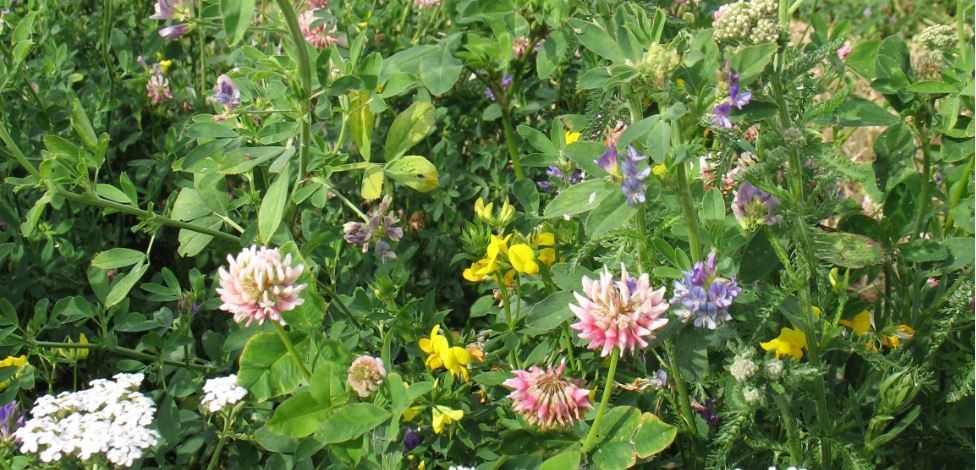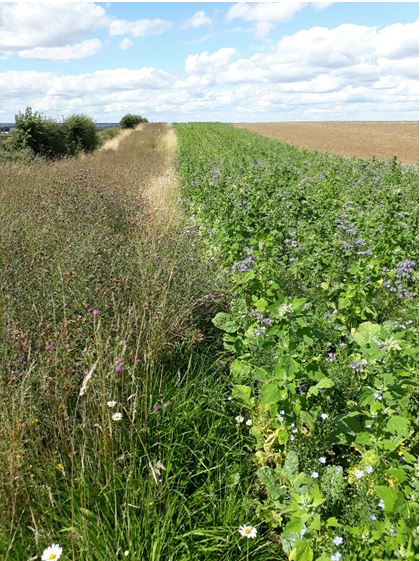Mid-Tier - five minutes to change your mind
Given my role, you will not be surprised to learn that I am almost fanatical about getting land managers and farmers to take a look at Countryside Stewardship and particularly Mid Tier agreements.
Oh no, I hear you groan! But give me five minutes and I will change your mind... It can't hurt to take a look, can it?
I know from my conversations, both at work and socially, with growers that people are apprehensive about Mid Tier agreements. Common worries are that there will be too much paperwork, the requirements to secure an agreement are unachievable or that implementing Mid Tier will simply take up too much time or cost too much.
But as someone who has helped steer growers through the stewardship process I say confidently that the benefits of Mid Tier – both financial and environmental – far, far outweigh the effort. With some planning and good advice, it's fairly straightforward to achieve a tidy and secure revenue stream from a Mid Tier agreement.
But there's too much paperwork, Neil!
The arable options in Mid Tier are far less onerous in terms of record keeping and evidence requirements compared to, say, the grassland options in Countryside Stewardship. Yes, you will be required to keep seed invoices and records of field operations for most of the options, but that is about as far as it goes.
Won't it cost me money, Neil?
No, the whole point is it will help bring in more money! Yes, there is an outlay of some resources such as environmental seed mixtures, a little of your time and perhaps some good advice but the rewards should cancel these out... and then some!
Mid-Tier to make a return from poorer land
On more marginal land, the grant rates for some of the arable options in Mid Tier stack up particularly well. For example, wild bird seed mixes pay £640 per hectare, nectar mixes are £511 per hectare, and wildflower margins are £539 per hectare. Using these options to take out less productive headlands, awkward corners, and straightening up of the cropped area can make life easier, particularly where big machinery is involved.
Mid-Tier to support the shoot
Wild bird seed mixes can be adapted to fit in well with shooting interests, providing another win-win situation if entering into the scheme. Mixes with good agronomic options enable these plots to remain in the same place year after year. There is also an option for providing supplementary winter feeding for farmland birds which is grant aided at £632 per tonne, an activity that many gamekeepers will already be pursuing, albeit with different feed mixes.
Many of the options mentioned also form part of the 'Wild Pollinator and Farm Wildlife Package'. This is designed to address pollinator and farmland bird declines. A mixture of habitats across a minimum 3% of the farm can mean a considerable score uplift and ultimately give a much better chance of securing an agreement.
OK, the money and the benefits sound good but I don't know where to start
With Countryside Stewardship set to open for business next year, now is a great time to get some expert advice.
An initial consultation with me or any of the other Kings' MyCompliance advisory team is free of charge and comes with no obligation. I am always delighted to hear from growers who want to talk about Mid Tier for the first time... however apprehensive they are!
That apprehension is understandable after all the years of change and uncertainty we've experienced. As we navigate our way through a post-Brexit world the grants available mean that Mid Tier should be something every land owner and grower should, at the very least, explore.
If my blog convinces just one more grower to take a look at a Mid Tier agreement, I will be a happy man!
Neil Harris
MyCompliance technical advisor
Get in touch with Neil or the Kings team for expert advice on your approach to Mid Tier stewardship.
For specific advice for your business related to this blog or any other aspect of crop production get in touch with Frontier.
As a subscriber, you’ll receive email alerts each time a new blog is published so you can always stay updated with the latest advice and insights from our experts




Comments